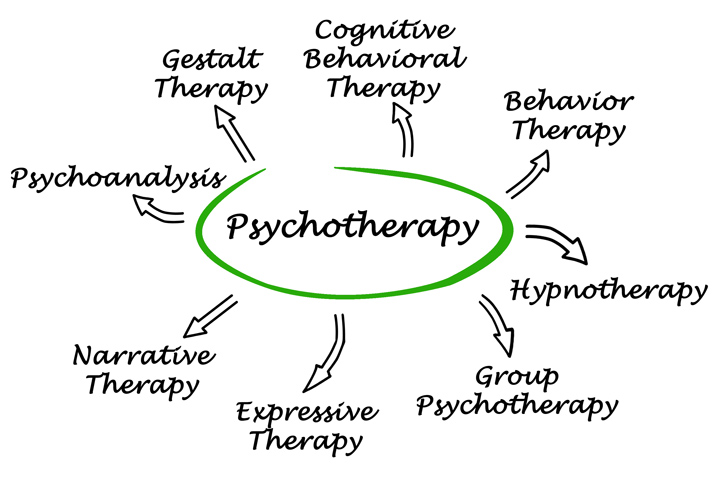Addiction is an incredibly complicated and almost enigmatic disease that we’ve only just begun to understand. It used to be that addiction was seen as an issue of morality rather than a disease, resulting in addicts being treated as bad people who were deviant and consciously choosing not to exercise any self-control. However, we’ve come to realize that addiction is actually a chronic, progressive brain disease characterized by the structural and functional changes in the brain resulting from habitual abuse of alcohol or drugs. This so-called disease model of addiction is the pervading understanding of addiction today, but there are still many people who associate morality and character with addiction. Fortunately, treatment methods like cognitive behavioral therapy can address the underlying causes of addiction, showing us that there’s more to substance abuse than a lack of self-control.
With addiction being such a complex disease, the treatment of an addiction isn’t as straightforward as we might hope. There are many different ways to become addicted, many drugs to which a person could become addicted, and a diverse variety of effects that a person could experience after developing an alcohol or drug addiction. Since every addict’s recovery needs are different from the needs of others, addiction recovery requires methods of treatment that are adaptable and able to address recovery needs individually. For this reason, the cognitive-behavioral method of psychotherapy remains one of the most widely-used and highly effective forms of treatment for addiction.
What Exactly is Cognitive Behavioral Therapy?
There are many different types of psychotherapy or counseling, each of which has specific purposes and applications. While there have been numerous psychotherapeutic techniques used in the treatment of substance abuse problems, the cognitive-behavioral style of psychotherapy is considered the most effective for a couple key reasons. For one thing, it’s a short-term form of psychotherapy, making it particularly useful in the treatment of addiction since most individuals are in addiction recovery programs only for relatively short periods of time. The basic idea is that the psychological problems people have are developed through learning processes and are oftentimes linked to past experiences and underlying psychological issues. It’s an extremely goal-oriented approach that helps patients to recognize their problems, identify the sources of those problems, and learn strategies and skills that will allow them to overcome the problems that are putting their health and well-being in jeopardy.
Originally, the cognitive-behavioral method of therapy was developed for individuals who had drinking problems. This counseling technique helped individuals to identify the causes for their problematic drinking behavior; some of the most common causes include prior exposure to alcohol abuse behavior, having an inability to cope with stress and other negative emotions in a constructive way, and so on. However, over time the cognitive-behavioral method of therapy was found to be useful in many other situations. Meanwhile, it continues to hold a central place in addiction treatment programs across the country and world.
Cognitive Behavioral Substance Abuse Therapy
It should come as no surprise that the form of therapy that originated as a means of treating alcoholism would still be used for substance abuse problems today. This form of treatment has certain characteristics that make it particularly well-suited for addiction treatment. As mentioned previously, cognitive behavioral psychotherapy is a short-term, goal-oriented form of therapy, meaning that there’s a major focus on an individual’s most urgent problems and finding immediate solutions; since the majority of addiction treatment programs last between a month and three months, the use of this method of psychotherapy means a patient has the potential for the most improvement of his or her symptoms as is possible.
Let’s consider how cognitive behavioral therapy for substance abuse works: At the start of treatment between a cognitive behavioral psychotherapist and a patient, the therapist helps the patient to identify any of his or her thoughts, feelings, beliefs, attitudes, and predispositions that could be related to his or her substance abuse. With that knowledge, the therapist can help the patient to identify the causes of those thoughts, feelings, and attitudes — or “cognitions” — so that the effects of those cognitions can be mitigated. Upon determining what experiences contributed to the individual’s substance abuse, the therapist can begin with the part of cognitive behavioral psychotherapy that involves teaching the patient useful skills that will allow the individual to cope in more productive ways without resorting to alcohol or drug abuse.
Benefits of Cognitive Behavioral Therapy in Addiction Treatment Programs
The benefits of a cognitive-behavioral approach to substance abuse treatment are quite numerous. For one thing, this type of psychotherapeutic approach is extremely patient-centered; rather than the therapist leading the sessions and directing the patient, the sessions are totally dependent on the patient’s place in the addiction recovery process, his or her background, and the specific, underlying factors that have contributed to the individual’s alcohol or drug problem. Even the skills that the therapist teaches to the patient to help mitigate the causes of the patient’s substance abuse are extremely personalized and dependent on each patient’s needs and history.
Many people turn to alcohol and drugs because they’ve never been taught or learned the coping skills that people need to handle stress, adversity, and other types of emotional situations. For these individuals, cognitive behavioral psychotherapy affords an opportunity to learn coping skills and various other strategies that will allow him or her to live a healthy, productive life and be part of their communities. As well, many addicts suffer from co-occurring, or comorbid, mental health problems, which can sometimes be identified over the course of cognitive behavioral forms of psychotherapy. When a comorbid mental illness is present, it’s common that the comorbid illness played a major factor in the individual’s development of an addiction; therefore, ensuring that the mental illness is addressed will minimize the likelihood that the mental illness would perpetuate a substance abuse problem.
Ohio Addiction Recovery Centers Are Here to Help — Call Us Today
Every addict deserves a second chance at health and happiness. If you or someone you love would like to discuss the treatment options currently available, call Ohio Addiction Recovery Centers toll-free at 800-481-8457. Whether it’s day or night, our team of intake coordinators and recovery specialists are always available to help you or your loved one begin the journey back to sobriety, health, and independence.







